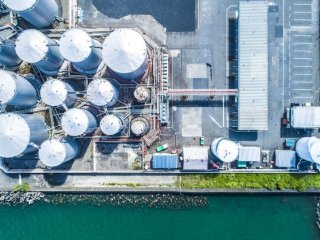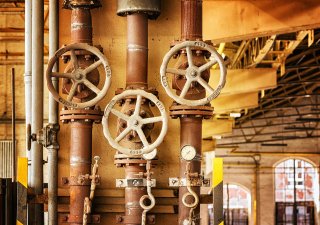Water Reuse for Industrial Applications Resources

Industrial water reuse is the use of recycled water for industrial applications. Examples of industrial applications include using treated municipal wastewater for manufacturing cars or cooling of data centers. Water used in industrial applications may also be generated via onsite processes such as boiler water, cooling water, microchip manufacturing, and oil and gas production and then used elsewhere in the industrial facility. Because this water may have limited contact with humans, it can be less costly and less energy intensive to treat and reuse.
Water reuse is the practice of reclaiming water from a variety of sources, treating it, and reusing it for beneficial purposes. The following resources relate to reuse for industrial applications; for information on other uses, please visit the Water Reuse Resource Hub by End-Use Application.
On this page:
Key Resources

The following are a sampling of the key water sector resources that are freely available to support water practitioners interested in developing industrial water reuse projects. Visit the Water Reuse Information Library for additional water reuse materials.
- 2025 Risk Based Framework for Developing Microbial Treatment Targets for Water Reuse – This EPA document provides detailed scientific information that states and Tribes can use to develop risk assessments and microbial treatment targets that support safe potable and non-potable water reuse.
- Context-Based Decision Guide for Water Reuse and Recycling (2020) – The Beverage Industry Environmental Roundtable (BIER) developed this guide to accelerate the transition to broader industry adoption of water reuse. It is a context-based decision guide that condones use of water reduction, water reuse, and water recycling (onsite and offsite) among industries.
- Water and Wastewater Treatment/Volume Reduction Manual (2014) – This manual was created by the Brewers Association for effective water and wastewater management within the craft brewer sector that is relevant to all brewery locations and sizes. The manual provides resources such as checklists and visual tools to help educate brewers about water usage and identify wastewater reduction opportunities.
- 2012 Guidelines for Water Reuse – This EPA document includes discussion of regional variations of water reuse in the U.S., advances in wastewater treatment technologies relevant to reuse, best practices for involving communities in planning projects, international water reuse practices, and factors that will allow expansion of safe and sustainable water reuse throughout the world. The guidelines also provide more than 100 case studies from around the world that highlight how reuse applications can and do work. Chapter 3.5 is specific to industrial reuse.
State Water Reuse Regulations and Guidelines
The following states developed guidelines and regulations for industrial water reuse. Click the links from the REUSExplorer to review summary documents, which include the state regulations authorizing the use of recycled water for industrial applications, water quality and treatment specifications, definitions, and more!
